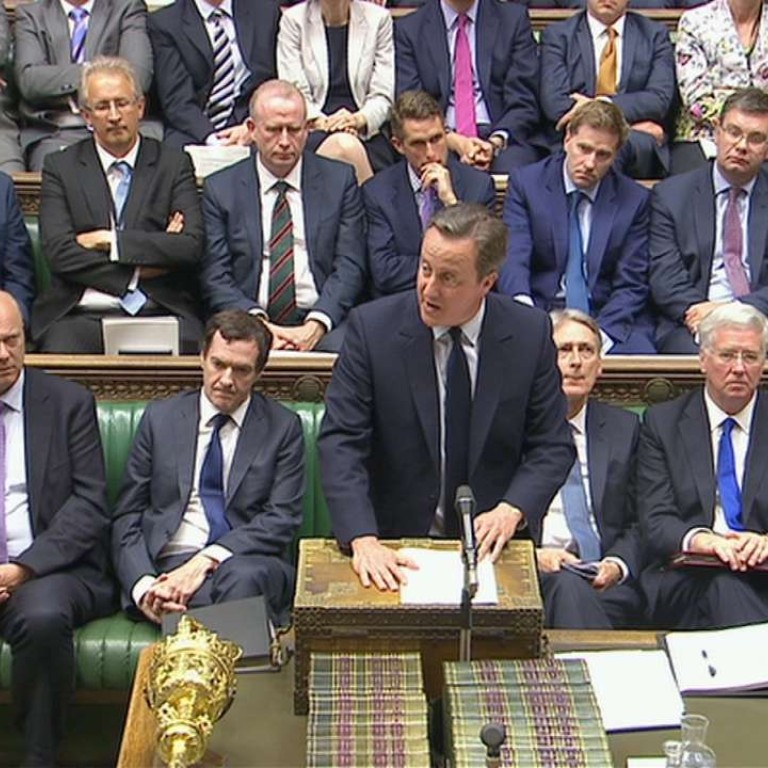
British PM Cameron rejects repeat Brexit vote sought by millions in online petition
British Prime Minister David Cameron has rejected calls for a do-over vote on leaving the European Union and assigned a team of officials to prepare for withdrawal following the referendum last week that stunned the world and triggered financial-market turmoil.

While Brexit won’t be “plain sailing” as the country adjusts, “Britain is ready to confront what the future holds for us from a position of strength,” Cameron, who announced his intention to resign in the wake of the vote, told the UK Parliament on Monday. “Britain will be leaving the European Union but we must not turn our back on Europe or the rest of the world.”
The rhetoric brought policy makers no closer to clarifying just what the UK’s new relationship with the EU will look like and how badly the economy will suffer from the rupture. As German Chancellor Angela Merkel and fellow European leaders kicked off a series of crisis talks, she urged Britain to get on with it. “An extended waiting game” was bad for both sides, she said.
A new Cabinet Office unit, comprising officials from the Treasury and Foreign Office, will start laying the groundwork for leaving the EU, which Britain joined in 1973. Helen Bower, Cameron’s spokeswoman, told reporters in London after the cabinet meeting that a second referendum was “not remotely on the cards” following a public petition for one.
The BBC reported that the House of Commons is investigating allegations of fraud in connection with the petition, which had more than 2.5 million signatures.
Europe’s leaders must decide how to treat Britain in the divorce talks and what steps to take to reinforce confidence in a bloc facing the departure of its second-biggest economy. Failure to deliver a strategy could prompt markets to force their hand - as they did after the collapse of Lehman Brothers Holdings Inc and Greece’s debacle.
Merkel, speaking to reporters in Berlin Monday, said the UK has to file official notification of its intention to leave before talks can start on its future relationship with what would be a 27-member EU. She said, though, it may take some time for the government to invoke Article 50 that triggers the countdown to an EU exit.
Cameron addressed parliament as the race to replace him nears, with pro-Brexit campaigner Boris Johnson and Home Secretary Theresa May among likely contenders. The Conservative Party today accelerated the timetable to elect a new leader, bringing the date forward by almost a month to September 2.
Members of the splintered government sought to reassure investors they’ll be able to navigate the fallout. Chancellor of the Exchequer George Osborne broke his silence to declare “you should not underestimate our resolve” to limit an “inevitable adjustment” in the economy. Johnson, the favorite to succeed Cameron, said “the negative consequences are being wildly overdone, and the upside is being ignored.”
He also gave his backing to Bank of England Governor Mark Carney, who was criticized by the Brexit camp during the campaign for outlining the economic consequences of leaving.
Osborne, who had warned that a Brexit would trigger a “DIY recession” and require an emergency squeeze of fiscal policy, downplayed those warnings on Monday. Instead, he pledged to “do everything I can” to make the new order work and revealed other contingency plans are available to soothe the transition if needed. He said he will reveal his own career plans in coming days.
The pound slumped 3.4 percent to $1.3218 at 5pm Monday in London, bringing its decline to more than 11 per cent since the referendum.

